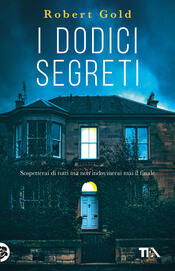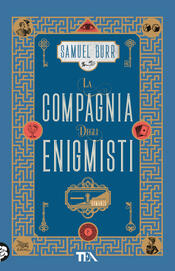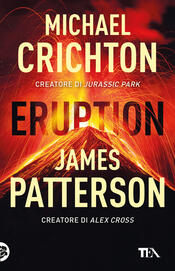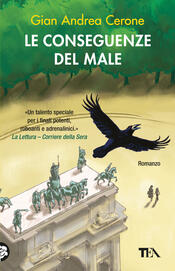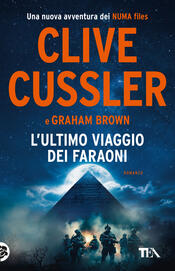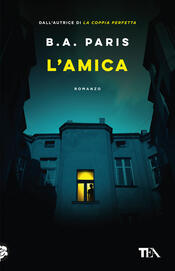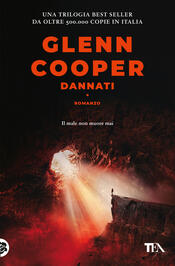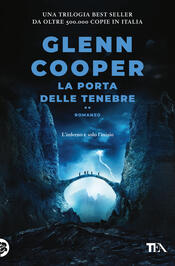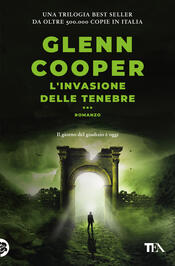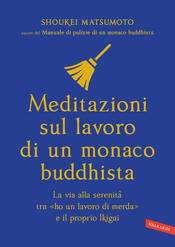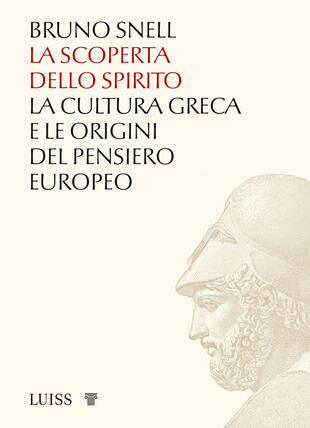

La scoperta dello spirito. La cultura greca e le origini del pensiero europeo
Acquistalo
Sinossi
"La scoperta dello spirito sono capitoli-saggio che vanno da Omero al periodo ellenistico e indagano come dalla naturalità indifferenziata della poesia epica si giunge attraverso la nascita della tragedia al problema di cos'è l'uomo, e come, dall'immagine-metafora, nasce il problema della scienza, e come la civiltà greca finisce con l'invenzione (Ellenisti, Virgilio) di un mondo arcadico, di arte pura: la letteratura. Indagine ricchissima di idee geniali, sorprendenti, di punti di vista illuminanti, su materia nota e vivace. Unico difetto: non è libro per il popolo. Io sono favorevole." (Cesare Pavese, giudizio editoriale sul libro di Bruno Snell, 3 settembre 1947). "Il volume che avete tra le mani non è un libro nuovo, ma un nuovo libro. È un invito a leggere o rileggere il capolavoro di Bruno Snell in modo più consapevole, nella sua versione completa, esemplata su quella definitiva tedesca. Dopo aver profondamente fecondato la cultura europea del dopoguerra, La scoperta dello spirito si è progressivamente eclissata: del resto la sua visione 'olistica' - oggi del tutto inattuale - fu concepita nella ormai remota Germania degli anni Trenta e Quaranta. Come possiamo, allora, tornare a leggerla con profitto? Si tratterà, anzitutto, di collocarla alla giusta distanza culturale, avvalendosi di una messa a fuoco mobile, come se si inforcassero delle lenti bifocali. Sarà impossibile fare un'esperienza di lettura 'vergine' o solo retrospettiva, riportando indietro le lancette della storia come in un racconto filmico: dovremo cercare perciò di tenere presenti sul nostro schermo i diversi piani culturali, facendo attenzione a non farci risucchiare - attratti dalla prosa elegante e incantatoria di Snell - in quella 'meravigliosa' Grecia dove tutto avrebbe avuto inizio e sviluppo, secondo una linea idealizzante, con sintesi storica nella famosa Aufhebung hegeliana." (Dalla prefazione di Roberto Andreotti)
- ISBN: 8861056660
- Casa Editrice: Luiss University Press
- Pagine: 448
- Data di uscita: 16-12-2021
Recensioni
For a very long time, I’ve told myself that I just wasn’t all that interested in Greek and Roman history. It’s overrated, I would tell myself. It got glorified by a bunch of snobby Renaissance poets way beyond its actual historical value. It’s boring. Being a medievalist will do things like this to Leggi tutto
This is one of the few books I've read that can truly be described as mind- and life-altering, without an ounce of hyperbole. Mr. Snell (or maybe Doctor Snell?) sets himself the nigh-on impossible task of parsing Greek philosophy and literature (to include plays and poetry) to try to delineate momen Leggi tutto
"The rise of thinking among the Greeks was nothing less than a revolution. They did not, by means of a mental equipment already at their disposal, merely map out new subjects for discussion such as the sciences and philosophy. They discovered the human mind". Ancient Greek thinking is indisputably th Leggi tutto
This is one of the first books, along with From Religion to Philosophy: A Study in the Origins of Western Speculation , that drew me into philosophy as an undergraduate. His chapter on Homer and the emerging Greek concept of the self is superb and helped me to understand just how profound a change oc Leggi tutto
Monumental ensayo que, mediante la filología, literatura y filosofía, explica la génesis del pensamiento y civilización europeos a partir de los griegos; grandísima obra, y todo un clásico, este «El descubrimiento del espíritu» de Bruno Snell, en @Acantilado1999.
Snell argues that the literary and philosophical writings of the early Greeks peeled open the mind within men bit by bit. In the Homeric epics and tales of Hesiod, the thoughts of the various heroes arise as speech of the Olympic gods and goddesses within the heroes' minds. The poet is the instrumen Leggi tutto
It is a startling moment when one realizes that ‘consciousness’ as we understand it, is fluid and changing over human developmental time. By readings in Julian Jaynes, and other authors who speak towards the evolution of consciousness... one begins to glimpse this strange terrain, which we, ourselve Leggi tutto
Citazioni
Al momento non ci sono citazioni, inserisci tu la prima!


